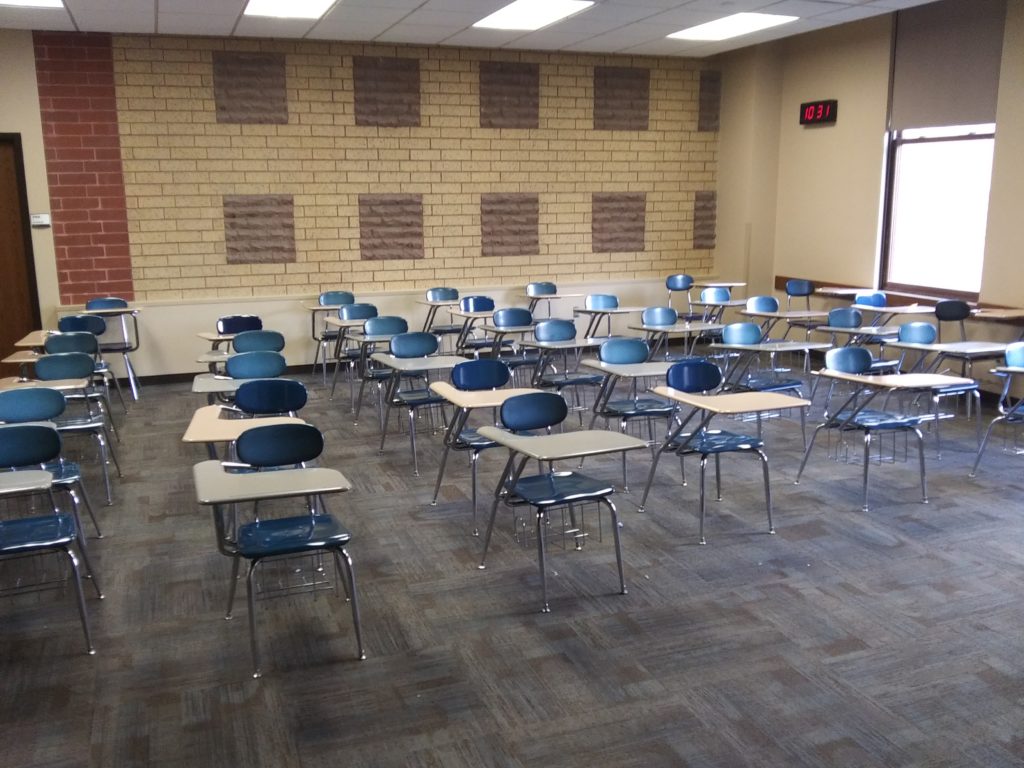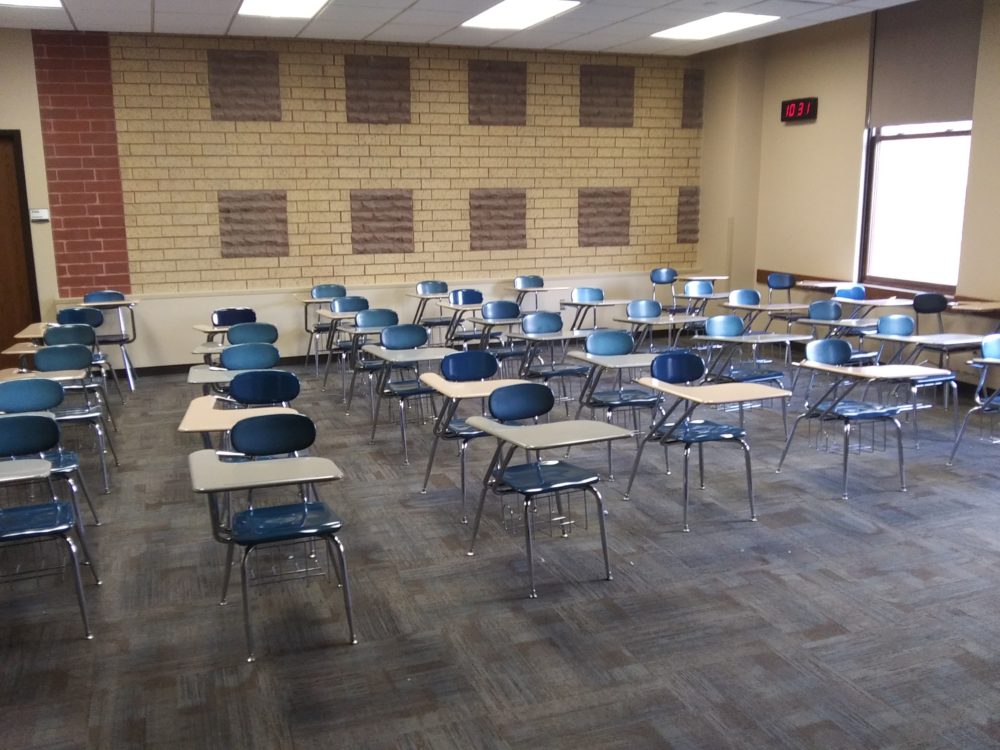Students are weary to speak-up in their classes

A classroom full of students can feel empty when no one is talking.
One of my favorite things about college classes is when the instructor asks the class a question and I get the chance to display my confidence by answering while the rest of my class remains silent. It allows me the opportunity to have my voice heard. However, it also has the tendency to be annoying, as it displays the rest of the classroom’s disconnect from the lesson that is being taught.
The other day I was in class and our instructor greeted us all with a jovial, “Good afternoon.” Likewise, I replied, “Good afternoon.”
I was the only one who did and had been doing so since the spring semester started. I asked my surrounding class: “How come I’m the only one who actually answers?”
The answer I received was a general chuckle that rippled through the classroom and nothing more. I sighed and shook my head at this. It seems people do not attend class to learn or express the knowledge they have gained, but instead just to be marked present.
I myself am guilty of this not-so-grand phenomenon. In another class, the results of a past test were brought up and I was asked by a fellow student who was late to class what the answer to the first question was. I had to reply, “Sorry, I wasn’t paying attention—I was thinking about ‘Star Trek.’”
The teacher then asked the classroom (of 18 students) a question which any one of us could have answered off the top of our heads because it was opinion-based. However, everyone chose instead to remain silent. This was not a one-time occurrence; I have experienced this kind of silence in 80 percent of my classes.
There are several factors that play into the silence of the classroom. The first is that students are afraid to speak up for fear that they may make a mistake in front of the whole classroom. This is understandable, when the rest of the class is quiet it’s easy to conclude that they are listening intently.
Should the student make the wrong conclusion he or she may feel called out when the teacher eventually relays the proper information or conclusion. There is such a thing as a dumb question. Yet, it is not dumb if the question pertains to the lesson and helps others learn.
Another factor is that students believe another person will answer for them. Countless studies have shown that if there is a problem to be addressed near a crowd of people, many of the participants will believe that someone else will cover it for them. This is a fallacy due to the fact that if everyone thinks this way—and this is often the case—nobody addresses the problem.
The third, and perhaps most obvious factor, is that students can be just plain lazy. Let’s face it, we have lives, jobs and people close to us outside the classroom. Many of us have other responsibilities and being in class is one of them.
With that said, we should treat each respective responsibility as worthwhile and pay attention to the lecture the teacher gives, gather information and speak up in the classroom. When the teacher asks a question, show them that you have learned something, or at least that you’re eager to learn more. The professor is giving any student an opportunity to express themselves or to point out what’s confusing and address it. Use that opportunity when it presents itself.
We never truly stop learning, and if in the right condition, the act of learning will create a hunger for more knowledge. So, in the next class you are in, pay attention to what is being taught and to what the teacher invites you to express; whether it be a question or a personal assessment, you might learn something.
I will end this article with a moment of positive reflection. The other day a guest speaker was in my class and gave a presentation on business in sales. He finished his presentation a half-hour before class ended and opened up the rest of the time for questions. There was a long pause as people gathered information in their minds. Then, one question was asked by a student and addressed by the speaker.
A ripple effect took place in which the more that was asked, the more was that was learned, which in turn led to more questions being asked.
We never truly stop learning, and if in the right condition, the act of learning will create a hunger for more knowledge. So, in the next class you are in, pay attention to what is being taught and to what the teacher invites you to express; whether it be a question or a personal assessment, you might learn something.
